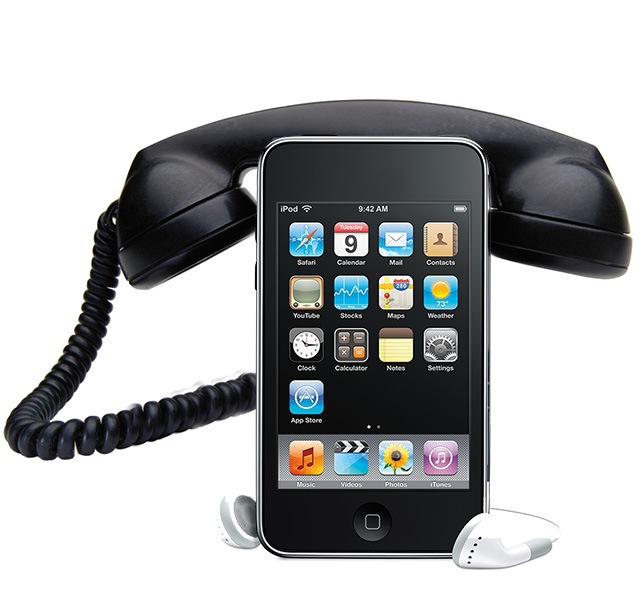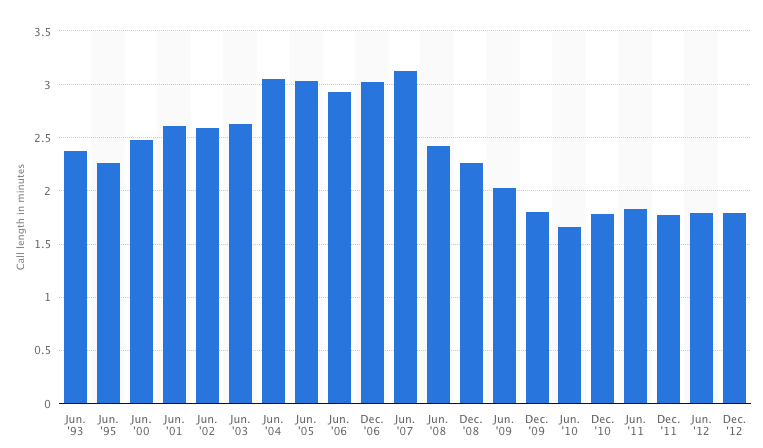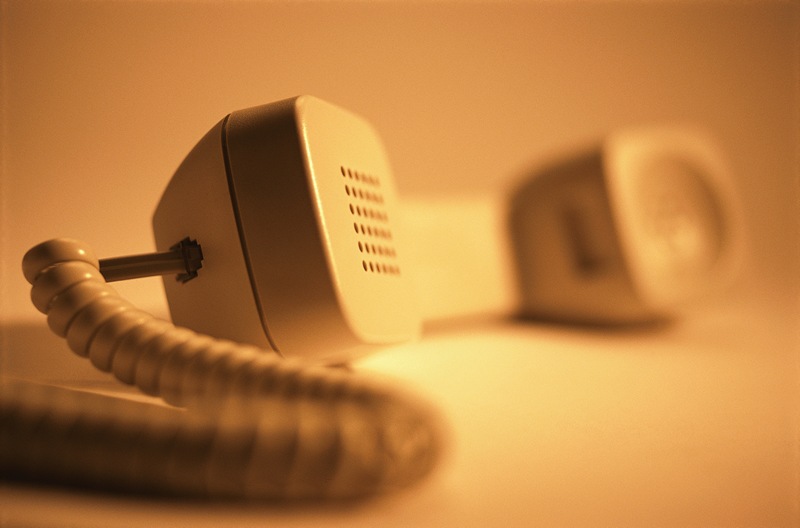The outgoing voice era

One of the main features of smartphones is still voice communication, after all, this device is primarily a telephone, and only then - a pocket computer. Although one cannot deny the fact that the function of the phone is increasingly beginning to resemble an atavism. Perhaps this statement seems strange to you, how can a mobile phone be an atavism? There are several reasons for such an assessment, and the main one is the psychological discomfort that most of us experience in one way or another during a telephone conversation. Don't be in a hurry to disagree right away - we would like to draw your attention to an interesting article published on Gizmodo .
Yes, once it was different. Voice telephony served a specific purpose: it provided instant communication. And it completely changed the rules of the game all over the world, starting in 1844. Since then, more than a century and a half has passed, and over this period, a huge, by the standards of technical progress, only the technical base of telephone communications has changed. And the principle itself remained virtually unchanged. And for this there were all the prerequisites, given the fact that the very opportunity to communicate with a voice with a person on the other side of the country or abroad was as accessible as important and useful.
Mobile phones have made a special contribution to improving our quality of life. One of the main reasons why people buy mobile phones today is to communicate in emergency situations. But now there are many other developed methods of mobile communication: SMS, e-mail, instant messengers. Today, the phrase "mobile phone" means exactly the smartphone, not its push-button predecessor. In fact, a whole “mobile culture” has already formed, for which the seemingly simple and innocuous voice communication is uncharacteristic - note that in the overwhelming majority of cases we correspond with each other, rather than communicate with other people.
')
For good reason. The text is easier and simpler to type, it is a less formal way of communication, in which you feel more relaxed. The call, on the other hand, requires from us a certain emotional tension and concentration. Sometimes the pressure on the interlocutor. We live in a world where we have to plan our future calls. Usually we call when there is some urgent business for which it is worth bothering to call. And often this is some kind of unpleasant urgent matter. “I didn't wait for the call, did something happen?”

In fact, now any other way to send a message is more preferable than a call. In addition to the mentioned SMS, mail and instant messengers, there are all sorts of social networks. Never before have we had such a variety of communication channels, with their unobtrusiveness and a wide choice of visual expression of all kinds of emotions. And this is great, because among all this celebration of life, the call is perhaps the worst communication option. When you dial someone’s number, you don’t know if the subscriber is busy right now, but he doesn’t know why you are calling, so the very fact of the call makes him alert, tense. By calling someone, each time we open Schrödinger's box, wondering if it is appropriate to have a conversation now. In addition, calls are much more emotionally saturated, which is why we are so annoyed by calls at an inopportune time or being disconnected from work.

It is necessary to answer someone's call, and the conversation immediately loses all these nice social nuances inherent in personal correspondence (sly winks, shy smiles, etc.), and turns out to be filled with household and confused scrumming: “Hello, how are you? Sorry, bad connection. What are you saying I do not understand, repeat again. And, no, it was not I who laughed, it was one of the 193,940 people who are around me now in this place. Sorry, did not hear? Yes, bye. " The worst part of the conversation, not carrying anything useful or good.
That is why more and more people use smartphones for text communication , and not voice. Swype -dialing mode on the on-screen keyboard, coupled with automatic word selection, makes non-voice communication methods even more convenient and informative. Some of them are good for communicating with society, some are for private conversations, but they are all psychologically more comfortable and tactful than a phone call.
If you need to hear someone's voice — your family, friends, or loved ones — then you usually find a lonely place to make a call. And in these cases it is better to communicate through video chatting, in order not only to hear, but also to see the person important to you.
If you find yourself somewhere in a public place, and you are seized with the desire to share something fleeting, empty thoughts, just reach for a smartphone, send a couple of lines - that's all. Modern chat interfaces allow us to constantly exist within the flow of information from our social connections.
The absence of the need to mobilize internally during an unexpected call makes communication more comfortable. Therefore, today we often anticipate our call with a text message “Can you call now? Or when is it better to dial? ”This was no longer a gesture of politeness, but a necessity. As one person pointedly noticed :
“Every phone call has a victim — the one to whom they are calling. You are distracted all the time from some business or occupation when they call to chat. Particularly unbearable in this regard, drivers stuck in traffic jams and calling their friends and acquaintances out of boredom.
... When I receive a text warning about a call, I always enjoy it, even without having read the message. And when my phone rings unexpectedly, I think: “Damn, who else is there?”
***
According to the Nielsen research agency , in 2007 the average length of telephone calls reached a historic high, then quickly fell and stabilized.

We have reduced the time spent with the tube at the ear, to the minimum possible, and now it remains only to abandon it altogether. True, at one time the same thing was prophesied to books, newspapers and e-mail, happily predicting for them all sorts of periods of dying. But they still somehow manage to survive. Phone calls also show all the signs of leaving into oblivion. Maybe it’s time to show mercy and stop everyone to call without need and to answer calls?

Of course, the function of the phone in the smartphone needs to be saved just in case of various emergency and urgent situations. Won't you, running away from a gang of painted killer clowns in the night forest, stop to send your friends a panic text message. But, fortunately, in our life there are not many situations that require speedy communication with other people. So, is it not better, protecting each other from unnecessary anxieties and inconveniences, to switch to text communication?
And you did not notice in yourself even a little, but tension, when you call someone or when you unexpectedly call? Do you often choose instead of calling a SMS or message in the messenger, if it is not urgent?
Source: https://habr.com/ru/post/247943/
All Articles